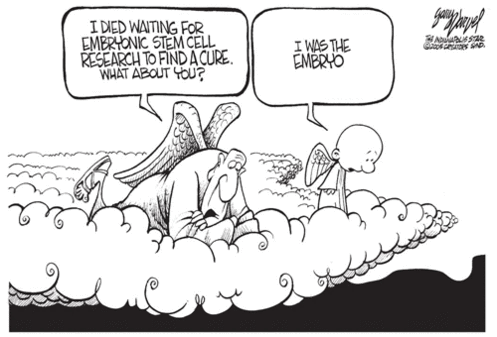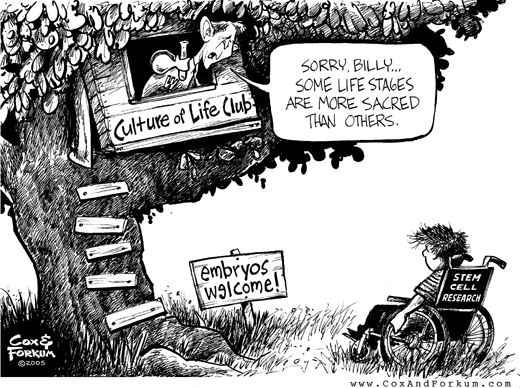Research on human embryonic stem cells has interested the public and caused debate. As the science and technology of stem cells continue to develop, so will ethical viewpoints.
The main ethical dilemma is the decision to choose between two moral principles: to end the suffering of the disabled or to respect and protect the value of human life. But at what point does life begin and when is an embryo considered human?
(22)
Ethical Issues with Stem Cell Research
Bioethicists Debra Mathews and Jeremy Sugarman of Johns Hopkins Medicine talk about the issues revolving around embryonic stem cell research (4)
FOR
Stem cell research allows scientists to get closer to finding cures for diseases with no treatment and give chances for the disabled to have the life they once had. Majority of research on embryonic stem cells come from spare embryos. Spare embryos are created to provide backup if a pregnancy was not successful. These embryos are destined to die because they are either discarded or stored in freezers.
Those who perform IVFs (in vitro fertilization), store or discard spare embryos are not punished by the law since they do not consider these embryos to be people or have same moral status as children and adults. If the law did, creators of these embryos would have been charged with either unlawful imprisonment, murder, or both.
(24)
AGAINST
Life begins the moment a sperm fertilizes an egg and should deserve some sort of protection and increasing moral status as it becomes more human-like. They still have the potential to develop into matured human beings no matter what stage they are at. As an embryo is forming into a fetus, it currently does not have the characteristics of a person but will eventually be one so it should be given both the respect and dignity of a person.
If embryonic stem cells are taken from an early embryo, it prevents the embryo from developing in its normal way and becoming what it was programmed to be—a human being. Why should undeveloped embryos give up a life they could have in order to save another? Embryos used to save a person's life will never be able to have a life of their own.
(23)
(18)

